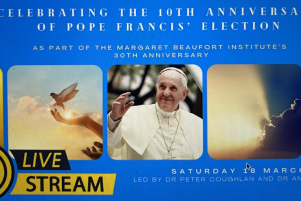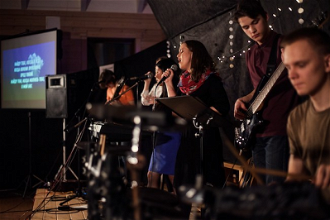Reflection: Are poor sermons leaving you hungry?

For well over a year now, on two continents, I have found myself sitting in the pews and a recipient of the Sunday homily. It’s been an interesting experience; I have heard some well-prepared, gifted and insightful preachers. Unfortunately, I have also heard some homilies that are ill-prepared, badly thought through, poorly delivered, boring, offer little inspiration and make virtually no connection between daily life and God’s Word. The Liturgy documents teach that we are fed at the Table of the Word, which then leads us to being fed at the Table of the Eucharist. All too often the crumbs at the Table of the Word are so few that clergy leave God’s people hungry. I am not suggesting that Mass is only about the homily, but let’s face facts: it makes a quantum leap of difference to our Sunday worship.
Pope Francis, in his Apostolic Exhortation Evangeli Gaudium, dedicates 18 pages to the preparation and delivery of the Sunday homily. The considerable amount of space given to this suggests that he is concerned about the quality of preaching in the Catholic Church. Humorously, he says he has sympathy for the preacher who delivers poor homilies and the people who have to listen to them! He, however, makes interesting comments on preaching – ones which it might be good for both preachers and their hearers to go and look at together.
Francis says that the homily “is not so much a time for meditation and catechesis as a dialogue between God and his people.” “The homily cannot be a form of entertainment like those presented by the media, yet it does need to give life and meaning… and must therefore be brief and avoid taking on the semblance of a speech or a lecture.” “A preaching which would be purely moralistic or doctrinaire, or one which turns into a lecture on biblical exegesis, detracts from this heart-to-heart communication which takes place in the homily and possesses a quasi-sacramental character.” For Pope Francis the homily is a real opportunity to help people enter into an intimate relationship and dialogue with God. Do you feel that the Sunday homilies you hear help you talk to God more authentically?
Speaking about homily preparation, Francis stresses the importance of devoting “a prolonged time of study, prayer, reflection and pastoral creativity” to it. He says: “A preacher who does not prepare is not ‘spiritual’; he is dishonest and irresponsible with the gifts he has received.” “The preacher also needs to keep his ear to the people and to discover what it is that the faithful need to hear. A preacher has to contemplate the word, but he also has to contemplate his people.” “He needs to be able to link the message of a biblical text to a human situation, to an experience which cries out for the light of God’s word.”
Francis says that language should be ‘positive’. “It is not so much concerned with pointing out what shouldn’t be done, but with suggesting what we can do better… if it does draw attention to something negative, it will also attempt to point to a positive and attractive value, lest it remain mired in complaints, laments, criticisms and reproaches.”
Perhaps it’s time that the people of God gave their Sunday homilists good critique of the homily. If we don’t give feedback, we cannot complain!
Follow Russell Pollitt SJ on twitter @rpollittsj
Source: Jesuit Institute of South Africa





















